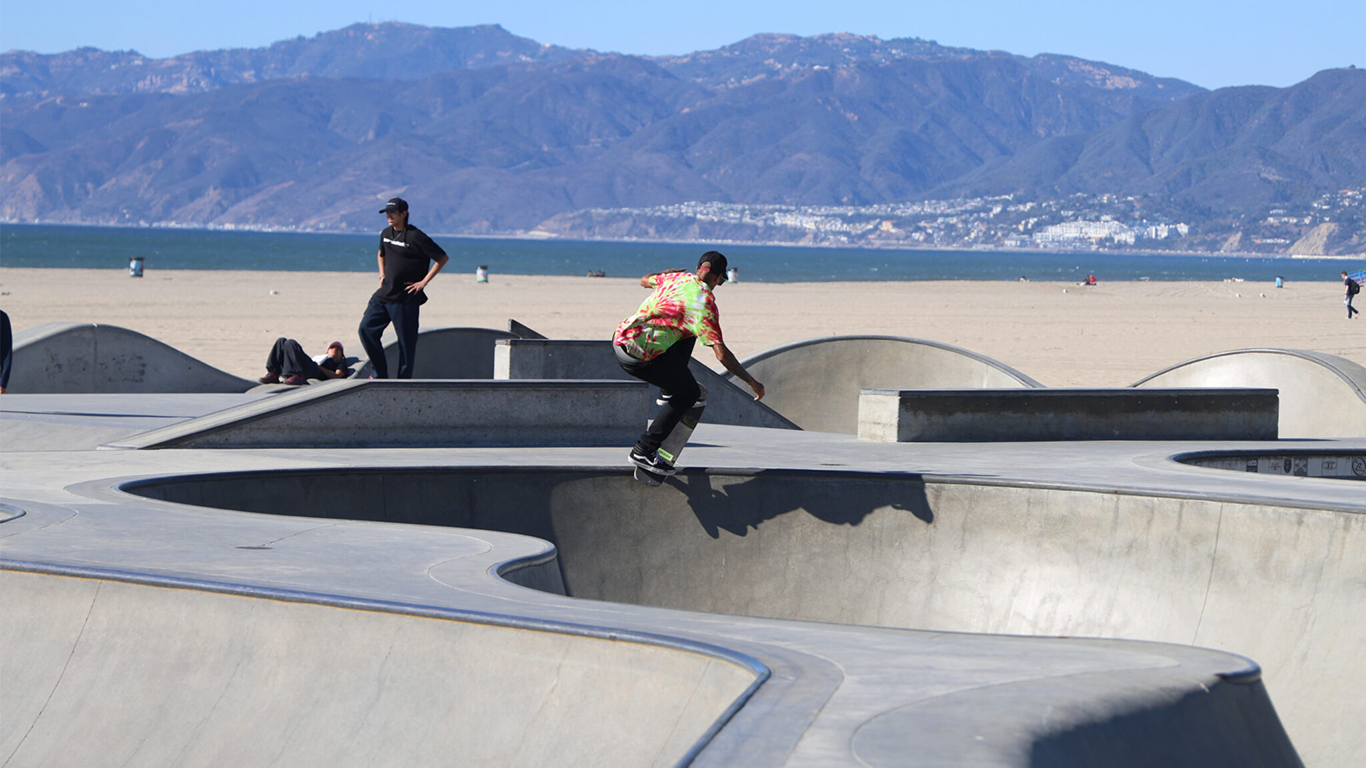Practicing kickflips and boardslides on a skateboard can be about navigating difficult emotions and can be especially helpful for those coming from communities where mental health is stigmatized.
Rding a skateboard builds a sense of belonging and reduces stress. Hispanics and Latinos face more barriers in access to and the quality of mental health care, National Alliance on Mental Illness reports.
MORE NEWS: Roller skating resurgence sparks interest in new and old roller rinks in Arizona
People manage stress and anxiety in many non-medical ways, like getting fresh air or spending time with loved ones. One of the most effective stress relievers is exercise. As a physically demanding activity, skateboarding not only improves strength and coordination but mental health.
“When it comes to skateboarding, you have to really use your legs, so primarily your glutes, your quadriceps, your hamstrings and your calves. You also have to use your core, which involves your abs and your obliques,” said Ashkan Alkhamisi, sports medicine physician at HonorHealth Orthopedics.
Riding a skateboard releases four common neurotransmitter hormones in the brain: dopamine, oxytocin, serotonin and endorphins. “Dopamine helps with the motivation at the rewards center because you’re trying to accomplish a certain task. Oxytocin helps improve your relationships with the people that you’re skateboarding with … serotonin is a feeling of significance and importance and endorphins … is your natural kind of painkiller which helps reduce anxiety and stress,” Alkhamisi said.
Adalberto Jesus Orozco, an avid Arizona skater, said that when he skates, nothing else matters to him but landing tricks. “Whenever I don’t want to be home or don’t want to deal with anybody, I just come and skate, listen to music and level out,” Orozco said.
According to Beyond the Board, a University of Southern California study of skateboarding culture, it’s not just a form of recreation but a way for people to build meaningful relationships.
Arizona skater Carlos Ochoa said he likes the community coming together and appreciates the friendships he’s made through skateboarding: “I like the fact that it brings everyone together and that I keep seeing my friends skate and get better and we get happy and excited when we land new tricks.”
More than one in five U.S. adults live with a mental illness, according to the National Institute of Mental Health. In Arizona, nearly 36% of adults reported symptoms of anxiety and/or depressive disorder, which is slightly higher than the national average of more than 32%.
Hispanic and Latino communities often do not acknowledge mental health struggles due to lack of access to resources, stigma and financial barriers. The National Alliance on Mental Illness reports that about a third of Hispanic/Latino adults with mental illness receive treatment, compared to nearly half of the overall U.S. population.
Ochoa releases the pressures of the work day by skating. “When I’m stressed out you can just come to the park and try to have fun,” Ochoa said.
Skateboarding keeps young adults active and reduces time spent on devices that contribute to anxiety, depression, isolation, low self-esteem and sleep issues, according to a study from the National Library of Medicine.
“Our research shows that through skateboarding, skaters develop the ability to communicate and build relationships with people from diverse backgrounds,” said Neftalie Williams, a co-author of The Skatepark Project, in a press release.
The researchers also said skateboarding builds critical thinking, problem solving, resilience and strong bonds, and while each skater develops their own success strategies, they often view the accomplishments of the fellow skaters as their own.




